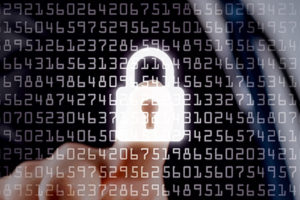By: Lori Smith and Michael Psathas
Early stage investing has seen a prolific form of capital raising enter the market over the last couple of years, called the “initial coin offering” or “initial token offering” (ICO). ICOs provide issuers with an alternative form of fundraising through the offering of tokens or coins that are virtual currencies or cryptocurrencies.[1] In its simplest form, a company attracts investors looking to get in on the exploding returns in the cryptocurrency market by selling its own digital currency in an offering that looks a lot like crowdfunding. However, cryptocurrency has been headline news lately because of the high level of fraud in the market and the great volatility in value of such currencies.
On July 25, 2017, the SEC released a detailed investigative report (Report) to caution entrepreneurs and investors that issuances of virtual tokens and coins in ICOs may be considered security offerings and therefore regulated by the SEC and subject to U.S. federal securities laws. Surprisingly, given the widespread use of these offerings, this Report was the first time the SEC formally took a position with respect to this topic.The SEC also released a notice (the Notice) to investors in which the SEC provides advice to investors considering participating in ICOs. The Notice describes several areas of concern and points to consider and includes recommendations which should be viewed as a roadmap for both investors as well as companies that intend to engage in an ICO.
In the first half of 2017, startups raised more than $1.1B through eighty-nine separate ICOs according to data compiled by Smith + Crown, a cryptocurrency research firm.[2] In addition, the volume of ICO offerings each week has increased from an average of 1.5 closings per week in 2016 to 2.75 closings per week in the first four months of 2017.[3] There are hundreds of these offerings currently listed on websites like ICO Calendar.[4] Explosive valuations of such coins and tokens have led critics to compare the cryptocurrency phenomenon to the dotcom bubble associated with the dramatic rise in asset value without an underlying rational basis for such valuation.
ICOs have recently been used by entities known as “decentralized autonomous organizations” or DAOs. DAOs are virtual organizations embodied in computer code that are decentralized and autonomous and utilize a distributed ledger or blockchain. These innovative organizations are “decentralized” in that the organization permits voting by investors holding the issued tokens or coins and “autonomous” because the votes are administered by the code of the DAO.
In the released Report, the SEC scrutinized one particular DAO known as “The DAO” (the Company), founded by a German corporation. From April 30, 2016 through May 28, 2016, the Company offered and sold 1.15 billion tokens (DAO Tokens) in exchange for Ether, another virtual currency. The Company’s successful offering was equivalent to approximately US $150 million. Participants who purchased DAO Tokens were permitted to vote on certain matters and were entitled to “rewards” (i.e., dividends). Given that the offering was not regulated, there were no limitations on the number of tokens offered, the number of purchasers or the level of sophistication of such purchasers.
Moreover, the holders of the DAO Tokens were not restricted from re-selling the tokens on a secondary market. This permitted holders of DAO Tokens to immediately monetize their investment in the Company on a secondary marketplace without any regulatory oversight. In fact, the Company’s promotional materials regarding the DAO Tokens advertised the availability of a secondary market on several platforms (the Platforms) after the offering period ended.
In the Report, the SEC advises that it will use “facts and circumstances” to determine whether the U.S. federal securities laws apply regardless of the technology used to effectuate a particular offering. In this case, the SEC concluded that the DAO Tokens were in fact securities. However, the SEC refused to bring charges or make findings of violations in this instance. Rather, the SEC’s goal in the Report was to caution the industry and market participants that the federal securities laws apply to those who offer and sell securities in the United States regardless of whether the issuer is a traditional company or a DAO and regardless of whether the securities are purchased with U.S. dollars or virtual currencies. The SEC also cautioned that the Platforms that were used to trade the DAO Tokens must register as a national securities exchange given that they satisfied the criteria of an exchange and did not appear to be exempted under the securities laws.
CONCLUSION
Given the recent explosion of virtual currency offerings and the nature of such fundraising campaigns, the cryptocurrency industry is ripe for additional SEC oversight. Moving forward, we believe that the SEC will take an active role in regulating stakeholders that desire to issue virtual coins or tokens and their associated secondary market platforms. Until then, the SEC’s Notice offers some practical advice for investors:
- review all material provided by the company and verify the reliability of such statements
- never rely on guaranteed returns promised by the company
- unsolicited offers or pressure to buy immediately is a strong indication of a fraudulent scheme and should be avoided
Finally, if all else fails, just ask whether the investment vehicle sounds too good to be true and, therefore, should be avoided. We will continue to monitor the development of the ICO marketplace and its regulatory framework.
If you have questions or would like additional information, please contact Lori Smith (smithl@whiteandwilliams.com; 212.714.3075), Michael Psathas (psathasm@whiteandwilliams.com; 212.868.4833) or another member of our Corporate and Securities Group.
[1] Virtual currency (or cryptocurrency) is a digital representation of value facilitated by blockchain or distributed ledger technology that does not have legal tender status in any jurisdiction. Rather, it is accepted as a form of payment within a community of users of such virtual currency. It is distinguished by fiat currency (sometimes referred to as “real money”) which is the coin and paper money of a particular country.
[2] https://www.benzinga.com/news/17/07/9825102/initial-coin-offerings-subject-to-same-regulatory-safeguards-as-regular-securitie
[3] http://www.marketwatch.com/story/what-are-icos-and-why-is-the-sec-taking-steps-to-protect-investors-from-them-2017-07-27
[4] https://tokenmarket.net/ico-calendar




